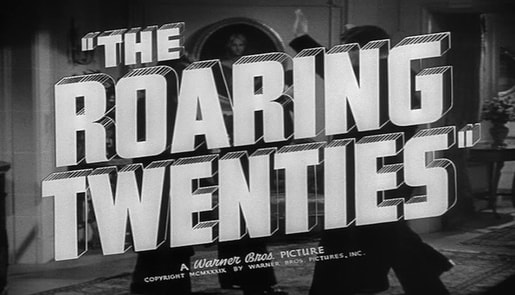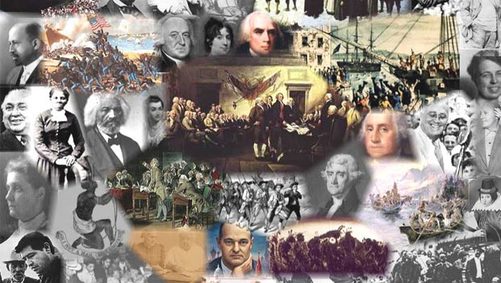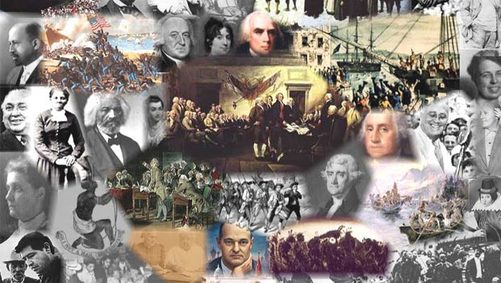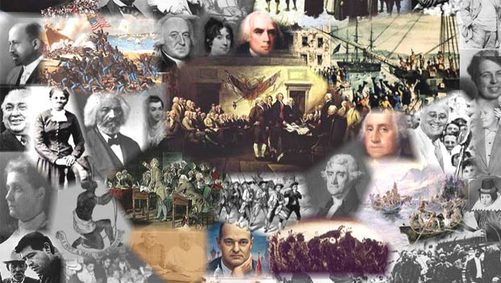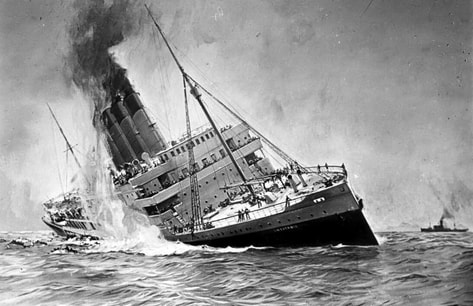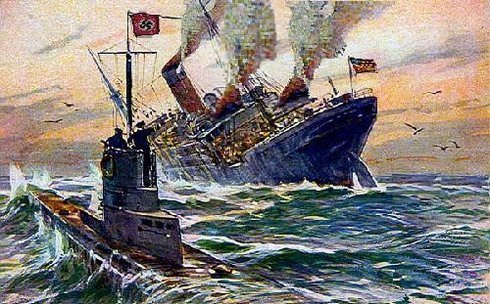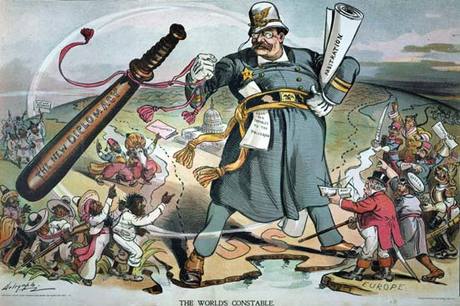|
Learning Target:
I can discuss the political, social, economic, & religious tensions that divided Americans during the 1920s. Critical Vocabulary: Mitchell Palmer, “Red Scare,” General Intelligence Division, “Soviet Ark,” “Palmer Raids,” Emergency Quota Act of 1921, Sacco and Vanzetti Trial, John Dewey, John T. Scopes, “Monkey Trial,” Clarence Darrow, Eighteenth Amendment, Volstead Act, “Speakeasies,” “Bootleg,” Al Capone, “Jazz Age,” Nineteenth Amendment, League of Women Voters, “New Woman,” “Flappers,” “Duke” Ellington, Cotton Club, “Harlem Renaissance,” Marcus Garvey, “Back to Africa Movement,” Claude McKay, Langston Hughes, Zora Neale Hurston, Gertrude Stein, F. Scott Fitzgerald, Ernest Hemingway, William Faulkner, T. S. Eliot, Ford Motor Company, Model T, Frederick Taylor, “Babe” Ruth,The Jazz Singer, Rudolph Valentino, Clara Bow Today's Agenda:
Homework: The Roaring Twenties Tentative Test Date: March 6
0 Comments
Learning Target:
I can discuss the political, social, economic, & religious tensions that divided Americans during the 1920s. Critical Vocabulary: Mitchell Palmer, “Red Scare,” General Intelligence Division, “Soviet Ark,” “Palmer Raids,” Emergency Quota Act of 1921, Sacco and Vanzetti Trial, John Dewey, John T. Scopes, “Monkey Trial,” Clarence Darrow, Eighteenth Amendment, Volstead Act, “Speakeasies,” “Bootleg,” Al Capone, “Jazz Age,” Nineteenth Amendment, League of Women Voters, “New Woman,” “Flappers,” “Duke” Ellington, Cotton Club, “Harlem Renaissance,” Marcus Garvey, “Back to Africa Movement,” Claude McKay, Langston Hughes, Zora Neale Hurston, Gertrude Stein, F. Scott Fitzgerald, Ernest Hemingway, William Faulkner, T. S. Eliot, Ford Motor Company, Model T, Frederick Taylor, “Babe” Ruth,The Jazz Singer, Rudolph Valentino, Clara Bow Today's Agenda:
Homework: The Roaring Twenties Tentative Test Date: March 6 Learning Target:
I can describe the events that led the United States into World War I, & I can analyze the war’s impact on American society. Critical Vocabulary: Archduke Franz Ferdinand, Central Powers, Allied Powers, U-boat, Lusitania, Sussex Ultimatum, Election of 1916, Charles Evans Hughes, “peace without victory,” unrestricted submarine warfare, Zimmerman Telegram, Committee on Public Information, George Creel, Food Administration, Herbert Hoover, Fuel Administration, War Industries Board, Bernard Baruch, National War Labor Board, Espionage Act of 1917, Sedition Act of 1918, Industrial Workers of the World, Eugene V. Debs, William D. Haywood, Schenck v. U.S., Oliver Wendell Holmes, “clear and present danger,” American Expeditionary Force, General John Pershing, “doughboys,” Battle of the Argonne Forest, Fourteen Points Address, Big Four, League of Nations, League Covenant, collective security, “war-guilt” clause, reparations, Treaty of Versailles, Henry Cabot Lodge, “reservationists,” “irreconcilables,” “Lodge Reservations,” Election of 1920, “return to normalcy,” Warren G. Harding Today's Agenda:
Homework: World War I Tentative Test Date: February 23 Learning Target:
I can describe the events that led the United States into World War I, & I can analyze the war’s impact on American society. Critical Vocabulary: Archduke Franz Ferdinand, Central Powers, Allied Powers, U-boat, Lusitania, Sussex Ultimatum, Election of 1916, Charles Evans Hughes, “peace without victory,” unrestricted submarine warfare, Zimmerman Telegram, Committee on Public Information, George Creel, Food Administration, Herbert Hoover, Fuel Administration, War Industries Board, Bernard Baruch, National War Labor Board, Espionage Act of 1917, Sedition Act of 1918, Industrial Workers of the World, Eugene V. Debs, William D. Haywood, Schenck v. U.S., Oliver Wendell Holmes, “clear and present danger,” American Expeditionary Force, General John Pershing, “doughboys,” Battle of the Argonne Forest, Fourteen Points Address, Big Four, League of Nations, League Covenant, collective security, “war-guilt” clause, reparations, Treaty of Versailles, Henry Cabot Lodge, “reservationists,” “irreconcilables,” “Lodge Reservations,” Election of 1920, “return to normalcy,” Warren G. Harding Today's Agenda:
Homework: World War I Tentative Test Date: February 23 Learning Target:
I can describe the events that led the United States into World War I, & I can analyze the war’s impact on American society. Critical Vocabulary: Archduke Franz Ferdinand, Central Powers, Allied Powers, U-boat, Lusitania, Sussex Ultimatum, Election of 1916, Charles Evans Hughes, “peace without victory,” unrestricted submarine warfare, Zimmerman Telegram, Committee on Public Information, George Creel, Food Administration, Herbert Hoover, Fuel Administration, War Industries Board, Bernard Baruch, National War Labor Board, Espionage Act of 1917, Sedition Act of 1918, Industrial Workers of the World, Eugene V. Debs, William D. Haywood, Schenck v. U.S., Oliver Wendell Holmes, “clear and present danger,” American Expeditionary Force, General John Pershing, “doughboys,” Battle of the Argonne Forest, Fourteen Points Address, Big Four, League of Nations, League Covenant, collective security, “war-guilt” clause, reparations, Treaty of Versailles, Henry Cabot Lodge, “reservationists,” “irreconcilables,” “Lodge Reservations,” Election of 1920, “return to normalcy,” Warren G. Harding Today's Agenda:
Homework: World War I Tentative Test Date: February 23 Learning Target:
I can describe the events that led the United States into World War I, & I can analyze the war’s impact on American society. Critical Vocabulary: Archduke Franz Ferdinand, Central Powers, Allied Powers, U-boat, Lusitania, Sussex Ultimatum, Election of 1916, Charles Evans Hughes, “peace without victory,” unrestricted submarine warfare, Zimmerman Telegram, Committee on Public Information, George Creel, Food Administration, Herbert Hoover, Fuel Administration, War Industries Board, Bernard Baruch, National War Labor Board, Espionage Act of 1917, Sedition Act of 1918, Industrial Workers of the World, Eugene V. Debs, William D. Haywood, Schenck v. U.S., Oliver Wendell Holmes, “clear and present danger,” American Expeditionary Force, General John Pershing, “doughboys,” Battle of the Argonne Forest, Fourteen Points Address, Big Four, League of Nations, League Covenant, collective security, “war-guilt” clause, reparations, Treaty of Versailles, Henry Cabot Lodge, “reservationists,” “irreconcilables,” “Lodge Reservations,” Election of 1920, “return to normalcy,” Warren G. Harding Today's Agenda:
Homework: World War I Tentative Test Date: February 23 Learning Target: I can describe the events that led the United States into World War I, & I can analyze the war’s impact on American society. Critical Vocabulary: Archduke Franz Ferdinand, Central Powers, Allied Powers, U-boat, Lusitania, Sussex Ultimatum, Election of 1916, Charles Evans Hughes, “peace without victory,” unrestricted submarine warfare, Zimmerman Telegram, Committee on Public Information, George Creel, Food Administration, Herbert Hoover, Fuel Administration, War Industries Board, Bernard Baruch, National War Labor Board, Espionage Act of 1917, Sedition Act of 1918, Industrial Workers of the World, Eugene V. Debs, William D. Haywood, Schenck v. U.S., Oliver Wendell Holmes, “clear and present danger,” American Expeditionary Force, General John Pershing, “doughboys,” Battle of the Argonne Forest, Fourteen Points Address, Big Four, League of Nations, League Covenant, collective security, “war-guilt” clause, reparations, Treaty of Versailles, Henry Cabot Lodge, “reservationists,” “irreconcilables,” “Lodge Reservations,” Election of 1920, “return to normalcy,” Warren G. Harding Today's Agenda:
Homework: World War I Tentative Test Date: February 23 Learning Target:
I can describe the events that led the United States into World War I, & I can analyze the war’s impact on American society. Critical Vocabulary: Archduke Franz Ferdinand, Central Powers, Allied Powers, U-boat, Lusitania, Sussex Ultimatum, Election of 1916, Charles Evans Hughes, “peace without victory,” unrestricted submarine warfare, Zimmerman Telegram, Committee on Public Information, George Creel, Food Administration, Herbert Hoover, Fuel Administration, War Industries Board, Bernard Baruch, National War Labor Board, Espionage Act of 1917, Sedition Act of 1918, Industrial Workers of the World, Eugene V. Debs, William D. Haywood, Schenck v. U.S., Oliver Wendell Holmes, “clear and present danger,” American Expeditionary Force, General John Pershing, “doughboys,” Battle of the Argonne Forest, Fourteen Points Address, Big Four, League of Nations, League Covenant, collective security, “war-guilt” clause, reparations, Treaty of Versailles, Henry Cabot Lodge, “reservationists,” “irreconcilables,” “Lodge Reservations,” Election of 1920, “return to normalcy,” Warren G. Harding Today's Agenda:
Homework: World War I Tentative Test Date: February 23 Learning Target:
I can compare and contrast Roosevelt, Taft, & Wilson's foreign policies, & I can evaluate the consequences of each. Critical Vocabulary: Alfred Thayer Mahan, Queen Liliuokalani, General Valeriano Weyler, William Randolph Hearst, Joseph Pulitzer, Yellow journalism, Dupuy de Lôme, USS Maine, Teller Amendment, Commodore George Dewey, Emilio Aguinaldo, Rough Riders,Treaty of Paris, Platt Amendment, Insular Cases, Roosevelt Corollary, Commodore Matthew Perry, Spheres of influence, John Hay, Open Door Policy, Boxer Rebellion, Treaty of Portsmouth, Gentlemen’s Agreement, Great White Fleet, Root-Takahira Agreement, Clayton-Bulwer Treaty, Hay-Pauncefote Treaty, Dollar Diplomacy, Moral Diplomacy, Jones Act, Francisco “Pancho” Villa, ABC Powers, Venustiano Carranza, General John J. Pershing Today's Agenda:
Homework: American Imperialism Tentative Test Date: February 23 |
History, although sometimes made up of the few acts of the great, is more often shaped by the many acts of the small.
-Mark Twain AnnouncementsMay 4: No School ResourcesArchives
May 2018
Visitors |
